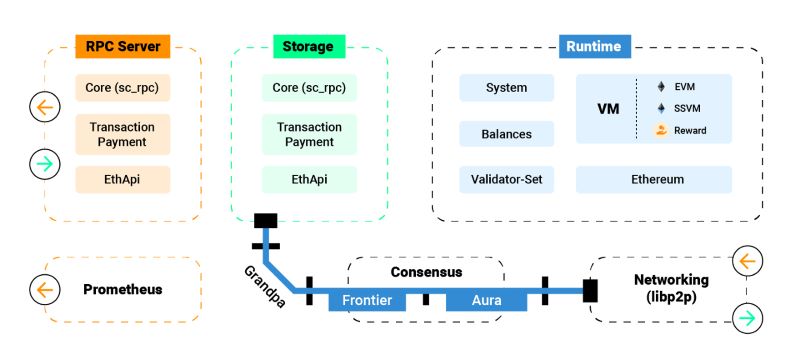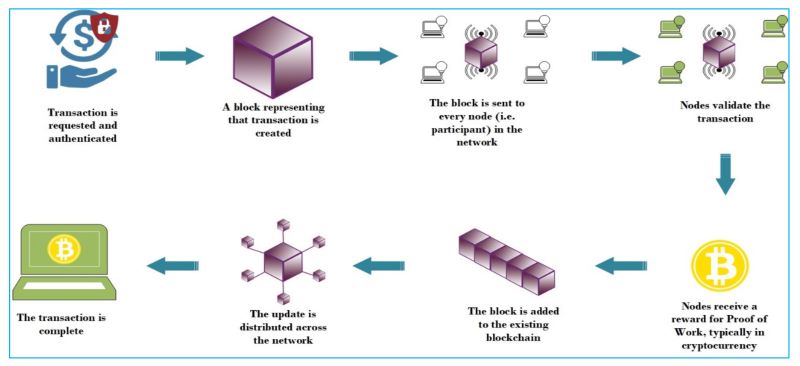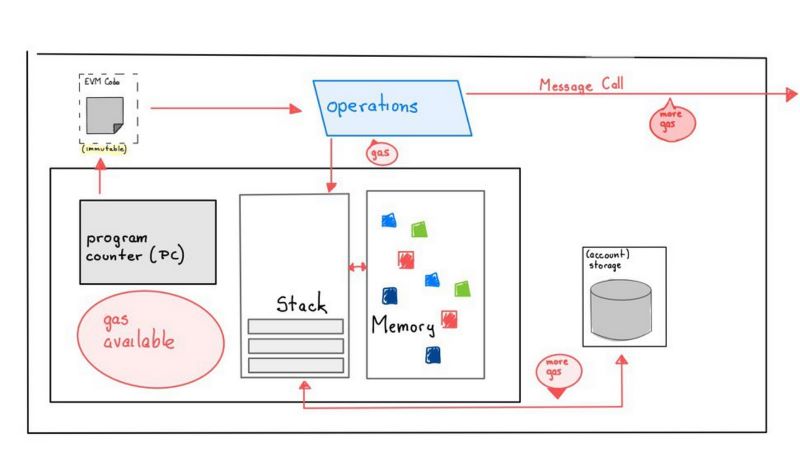Unlock the secrets of smart contracts and decentralized apps! Discover the power of the blockchain virtual machine, the engine that drives the decentralized revolution. Click to explore this cutting-edge technology.
What is blockchain virtual machine?
Blockchain technology has revolutionized various industries by offering decentralized and secure application solutions. At the heart of many blockchain platforms lies a critical component known as a virtual machine. Virtual machines play a pivotal role in executing smart contracts, processing transactions, and ensuring the integrity of the blockchain.
A virtual machine (VM) is a software-based emulation of a physical computer or computing environment. It operates as an isolated and self-contained entity within a host system, running its operating system and applications. VMs are widely used in various computing scenarios, from server virtualization to software development and testing.
In the context of blockchain, a virtual machine is a key component that allows for the execution of smart contracts and decentralized applications (dApps). These virtual machines are designed to be deterministic, meaning that given the same input, they will produce the same output, ensuring consistency and predictability in blockchain operations.
The Ethereum Virtual Machine (EVM) is one of blockchain’s most well-known and widely used virtual machines. It was created by Ethereum’s founder, Vitalik Buterin, to enable the execution of smart contracts on the Ethereum blockchain. The EVM is a Turing-complete virtual machine, meaning it can perform any computation that a traditional computer can, given enough time and resources.
Smart contracts on the Ethereum platform are written in high-level programming languages like Solidity and then compiled into bytecode that the EVM can execute. This bytecode contains the instructions for the smart contract, defining its logic and behavior.
How blockchain VMs work
Code Execution: Smart contracts, the self-executing agreements at the heart of blockchain applications, are written in high-level languages (like Solidity for Ethereum). These contracts are then compiled into a low-level language called bytecode. The blockchain VM is specifically designed to interpret and execute this bytecode.
State Management: Each smart contract has its own state, which is essentially a snapshot of its data and variables at any given moment. The VM meticulously maintains this state, updating it as the contract executes. This ensures that the contract’s behavior remains consistent and predictable across all nodes in the blockchain network.
Determinism: A fundamental property of blockchain VMs is determinism. This means that if you give the VM the same bytecode and the same starting state, it will always produce the exact same result. This determinism is vital for achieving consensus in a decentralized network. All nodes running the VM must agree on the outcome of each smart contract execution to maintain the integrity of the blockchain.
Security (The Sandbox): Blockchain VMs operate in a sandboxed environment. Think of it as a secure, isolated container. This isolation protects the rest of the blockchain network from any potential harmful effects of a faulty or malicious smart contract. The VM ensures that a contract can only access its own data and resources, preventing it from interfering with other contracts or the core blockchain protocol.
Some of the key functions of virtual machines in blockchain
Smart Contract Execution: VMs are the engines that power smart contracts. They take the compiled bytecode of a smart contract and execute it, step by step, according to the predefined logic. This enables the automatic enforcement of the contract’s terms without the need for intermediaries.
Transaction Verification and Validation: Before a transaction is added to the blockchain, it must be verified to ensure its validity. VMs play a key role in this process. They check that the transaction is properly formatted, digitally signed, and has sufficient funds (in the case of cryptocurrency transfers).
Consensus Facilitation: VMs help nodes in the blockchain network reach consensus on the state of the blockchain. They ensure that all nodes agree on which transactions are valid and the order in which they should be added to the blockchain. This is essential for maintaining the integrity and security of the blockchain.
Security through Sandboxing: VMs create a sandboxed environment for smart contract execution. This isolation prevents a faulty or malicious smart contract from affecting other contracts or the underlying blockchain. It also helps protect the network from potential vulnerabilities in the code.
Interoperability Enhancement: In some advanced blockchain architectures, VMs enable interoperability between different blockchains. This means that smart contracts on one blockchain can communicate and interact with smart contracts on another blockchain. This opens up a wide range of possibilities for cross-chain applications and services.
Subscribe to the Blockchain Bulletin Weekly newsletter for expert insights, in-depth analysis, and exclusive content.


